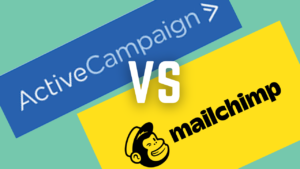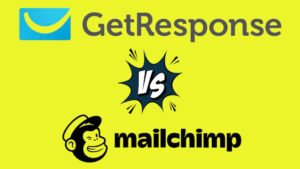If you’re exploring ActiveCampaign alternatives, you’re likely in search of a powerful email marketing and automation solution that better suits your business needs. Whether ActiveCampaign’s pricing exceeds your budget or its features don’t align with your strategy, there are numerous alternatives available that can deliver similar or even enhanced functionality. In this post, we’ll cover the top 15 ActiveCampaign alternatives for growth marketing, helping you find the perfect tool to drive your business forward.
Table of Contents
What Is ActiveCampaign?
ActiveCampaign is a powerful customer experience automation (CXA) platform that combines email marketing, automation, sales CRM, and messaging into one comprehensive tool. With its focus on delivering personalized experiences at scale, ActiveCampaign is popular among businesses looking to improve customer engagement and streamline processes.
What Should You Look for in ActiveCampaign Alternatives?
When choosing an alternative to ActiveCampaign, it’s essential to consider a few critical factors:
- Ease of Use: How user-friendly is the platform for setting up campaigns, managing contacts, and running automations?
- Pricing: Does the platform fit within your budget without sacrificing key features?
- Integrations: Can it integrate with other tools your business uses, like CRM software, eCommerce platforms, or social media channels?
- Customer Support: Does the platform offer adequate support, including tutorials, documentation, or live support options?
- Customization: Does the platform offer customization in terms of workflows, emails, and customer segments to tailor campaigns to your business needs?
Pros and Cons to Using ActiveCampaign
Before diving into the alternatives, let’s look at some key advantages and drawbacks of ActiveCampaign.
Pros
- Advanced Automation: ActiveCampaign offers some of the most sophisticated automation tools available, making it ideal for businesses with complex workflows.
- CRM Integration: It combines email marketing with built-in CRM capabilities, which helps align marketing and sales teams.
- Segmentation & Personalization: The platform offers detailed segmentation options and allows for highly personalized messaging, which improves engagement.
Cons
- Price: ActiveCampaign’s pricing can be on the higher side, especially for small businesses or startups.
- Overly Complex for Small Businesses: For smaller businesses or simpler marketing campaigns, ActiveCampaign’s vast feature set might feel excessive.
- Learning Curve: While powerful, the tool has a steep learning curve for beginners who may find the complexity overwhelming.
The Best ActiveCampaign Alternatives (Comparison Table)
| Tool | Best For | Starting Price | Free Plan | Key Features |
|---|---|---|---|---|
| ClickUp | Project Management Integration | $5/month | Yes | Task management, automation, collaboration tools, and reporting |
| Brevo (formerly Sendinblue) | Small Businesses | $25/month | Yes | Email campaigns, SMS marketing, automation, CRM |
| Mailchimp | Beginners | $13/month | Yes | Email templates, A/B testing, customer segmentation |
| Omnisend | E-commerce Businesses | $16/month | Yes | SMS and email marketing, automation, eCommerce integrations |
| Klaviyo | Shopify Users | $20/month | No | eCommerce automation, predictive analytics, segmentation |
| EngageBay | All-in-One Suite | $12.74/month | Yes | CRM, email marketing, sales automation, and landing pages |
| ConvertKit | Content Creators | $9/month | Yes | Landing pages, automations, email sequences |
| HubSpot | Scaling Businesses | $50/month | Yes | CRM, marketing automation, reporting and analytics |
| AWeber | Simple Email Marketing | $12.50/month | Yes | Email campaigns, landing pages, integrations |
| GetResponse | Lead Generation | $19/month | Yes | Autoresponders, CRM, landing pages, webinars |
| MailerLite | Budget-Friendly | $9/month | Yes | Email automation, landing pages, pop-ups |
| Drip | Shopify and WooCommerce Users | $39/month | No | eCommerce automation, SMS marketing, detailed tracking |
| Keap | Sales & Marketing Automation | $129/month | No | CRM, marketing automation, invoicing |
| HighLevel | Agencies and Marketers | $97/month | No | CRM, email and SMS marketing, pipeline management |
| SharpSpring | Marketing Agencies | $399/month | No | Email automation, CRM, social media management |
Top 15 ActiveCampaign Alternatives for Growth Marketing
1. ClickUp

ClickUp is an all-in-one productivity tool that goes beyond email marketing and automation, making it a great fit for businesses that need robust project management features in addition to marketing automation. Although it’s primarily a project management tool, its automation capabilities make it a viable option for teams looking to combine both functions in one platform.
Pros
- Project Management Integration: ClickUp’s integration with project management tools helps teams streamline their workflows and track both marketing and operational tasks.
- Automation: The platform offers a variety of automation rules that can trigger workflows based on specific actions, similar to what you’d find in dedicated marketing tools.
- Collaboration Tools: With built-in collaboration features, teams can easily share progress, assign tasks, and communicate within the platform.
Cons
- Limited Marketing Focus: ClickUp is not a dedicated email marketing tool, so it may not offer all the specialized features that tools like ActiveCampaign do.
- Steep Learning Curve: Its versatility comes with complexity, which may take time for users to fully grasp.
2. Brevo (formerly Sendinblue)

Brevo is a versatile marketing platform tailored to small and medium-sized businesses, offering email marketing, SMS campaigns, and marketing automation. Known for its simplicity and affordability, Brevo makes it easy to create personalized communication and manage customer relationships without a steep learning curve.
Pros
- Affordable Pricing: Brevo’s pricing model is accessible for smaller businesses, offering a variety of features at competitive rates.
- Multichannel Marketing: In addition to email, Brevo offers SMS marketing, allowing businesses to communicate with customers via multiple channels.
- Free Plan Available: Its free plan offers access to most features, including email campaigns and automation, making it a good option for startups.
Cons
- Limited Customization: Compared to ActiveCampaign, Brevo’s automation workflows can be more rigid, with fewer customization options.
- Basic Reporting: The analytics and reporting features aren’t as detailed as some other alternatives, which can be a drawback for data-driven marketers.
3. Mailchimp

Mailchimp is one of the most well-known email marketing platforms, especially among small businesses and beginners. It’s widely used for its intuitive drag-and-drop interface and powerful email marketing tools. Mailchimp also offers automation, but it stands out for its user-friendly approach to campaign management.
Pros
- User-Friendly Interface: Mailchimp’s simple interface is ideal for beginners, allowing users to create professional campaigns quickly.
- Built-In Templates: Pre-designed email templates save time and ensure that even non-designers can create attractive emails.
- All-in-One Solution: With landing pages, A/B testing, and customer segmentation, Mailchimp is a well-rounded tool for email marketers.
Cons
- Expensive as You Scale: Mailchimp’s pricing increases significantly as your contact list grows, which can make it costly for larger businesses.
- Limited Automation: Compared to ActiveCampaign, Mailchimp’s automation features are more basic and less suited to complex workflows.
4. Omnisend
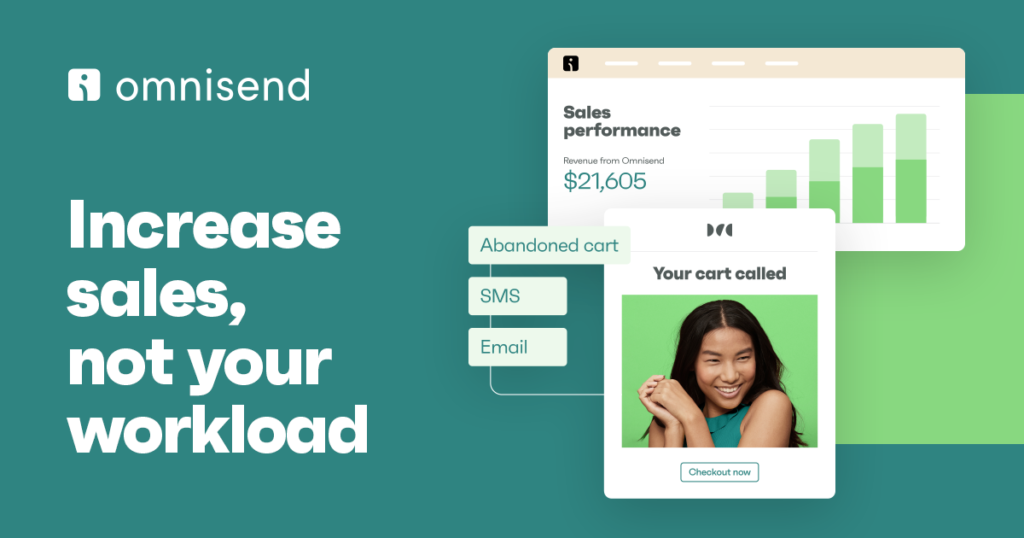
Omnisend is a powerful marketing platform designed with eCommerce businesses in mind. It offers advanced features like SMS marketing, omnichannel automation, and deep integrations with popular eCommerce platforms. Omnisend is built to help businesses increase sales by engaging customers through personalized marketing messages.
Pros
- eCommerce Focused: Omnisend integrates seamlessly with eCommerce platforms like Shopify, WooCommerce, and BigCommerce, making it a great choice for online stores.
- Omnichannel Marketing: It allows you to reach customers through email, SMS, and other channels, ensuring consistent messaging across platforms.
- Advanced Segmentation: With detailed customer segmentation options, Omnisend enables personalized marketing campaigns that improve conversions.
Cons
- Higher Learning Curve: For businesses without an eCommerce focus, the platform’s features may be overkill, leading to a steeper learning curve.
- Pricey for Larger Contact Lists: Omnisend’s pricing becomes more expensive as your contact list grows, particularly if you add SMS marketing into the mix.
5. Klaviyo
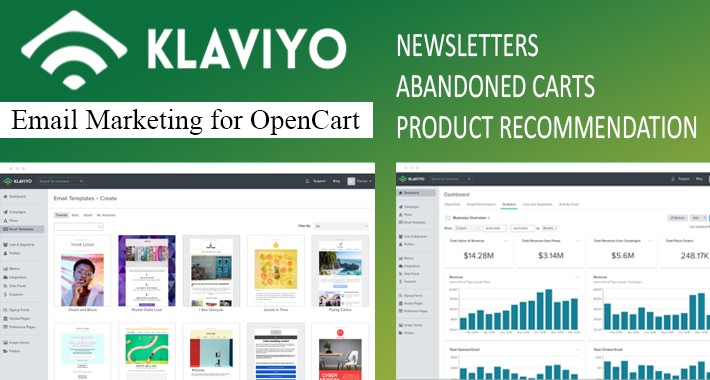
Klaviyo is another top choice for eCommerce businesses, especially those using Shopify. It offers advanced marketing automation features, allowing businesses to build personalized customer experiences that drive conversions. With its powerful predictive analytics and segmentation tools, Klaviyo is a favorite among data-driven marketers.
Pros
- Predictive Analytics: The platform uses data science to predict future customer actions, helping businesses make smarter marketing decisions.
- Personalized Campaigns: Klaviyo excels in creating highly personalized marketing campaigns that can be tailored to individual customer journeys.
- Deep eCommerce Integration: Klaviyo’s integration with platforms like Shopify and Magento allows for seamless marketing based on customer behavior.
Cons
- No Free Plan: Unlike some of its competitors, Klaviyo doesn’t offer a free plan, which could be a disadvantage for startups or small businesses.
- Complexity: Klaviyo’s rich feature set can be overwhelming for users who are not experienced in advanced automation and data analysis.
6. EngageBay

EngageBay is an all-in-one marketing, sales, and CRM platform, making it a great choice for businesses looking to consolidate tools. It offers a wide range of features, including email marketing, landing pages, and automation workflows, all at an affordable price point. EngageBay is ideal for small businesses that need multiple functions in one place without breaking the bank.
Pros
- All-in-One Solution: EngageBay combines email marketing, CRM, sales automation, and customer support into one platform, eliminating the need for multiple tools.
- Affordable Pricing: It’s one of the most cost-effective alternatives to ActiveCampaign, with features comparable to pricier competitors.
- Free Plan: EngageBay offers a free plan, making it accessible for startups or small businesses.
Cons
- Limited Customization: While EngageBay covers a lot of ground, its customization options for automation workflows and reporting aren’t as advanced as some of the other alternatives.
- Limited Integrations: It offers fewer integrations compared to larger platforms like ActiveCampaign or HubSpot, which may restrict its functionality for certain businesses.
7. ConvertKit

ConvertKit is designed specifically for creators, including bloggers, YouTubers, and online course creators. Its simple automation tools and subscriber management features make it easy to build an email list and engage with audiences. ConvertKit excels at delivering content-based marketing through email sequences and automated campaigns.
Pros
- Built for Creators: ConvertKit’s focus on creators makes it ideal for individuals and small businesses focused on content marketing.
- Easy Automation: The platform offers simple yet effective automation features, such as drip sequences and personalized messaging based on user behavior.
- Free Plan Available: ConvertKit’s free plan is perfect for creators just starting out and allows for list-building and email marketing without upfront costs.
Cons
- Limited Features for Businesses: ConvertKit lacks some advanced marketing features, like CRM and deep analytics, making it less suitable for larger businesses or those with complex workflows.
- Limited eCommerce Features: While ConvertKit offers integrations for selling products, its features are not as robust as platforms focused on eCommerce, like Klaviyo or Omnisend.
8. HubSpot
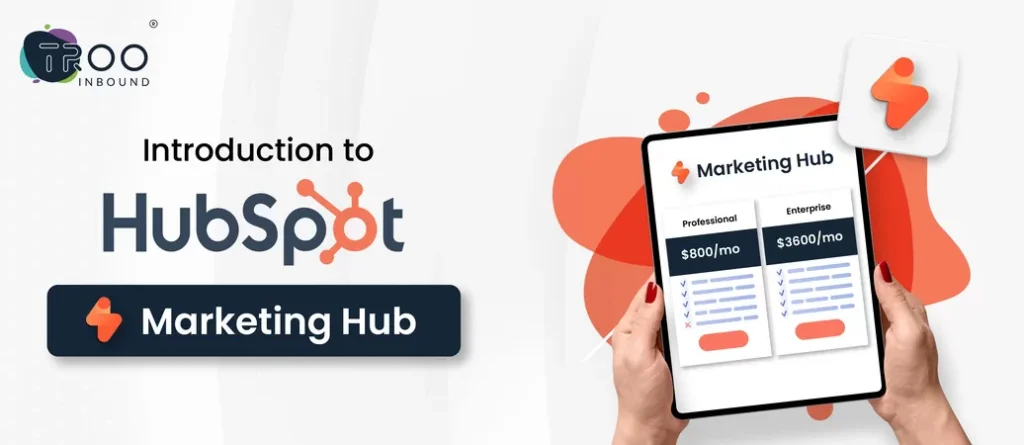
HubSpot is a powerful marketing automation platform designed for scaling businesses. Known for its CRM capabilities, HubSpot integrates marketing, sales, and customer service tools to create an all-in-one solution. Its marketing automation features are robust, making it a strong contender for businesses looking for growth-focused alternatives to ActiveCampaign.
Pros
- Comprehensive CRM Integration: HubSpot’s CRM is included with the marketing platform, helping businesses align their sales and marketing efforts.
- Extensive Free Tools: HubSpot offers a range of free tools, including email marketing, CRM, and basic automation, making it highly accessible.
- Scalable: As your business grows, HubSpot’s suite of tools grows with you, offering advanced features for marketing, sales, and customer service.
Cons
- High Pricing for Advanced Features: While HubSpot offers free tools, its advanced features, like marketing automation, can be costly as you upgrade.
- Complex Setup: The platform has a wide range of features, which can make the initial setup and configuration time-consuming for new users.
9. AWeber
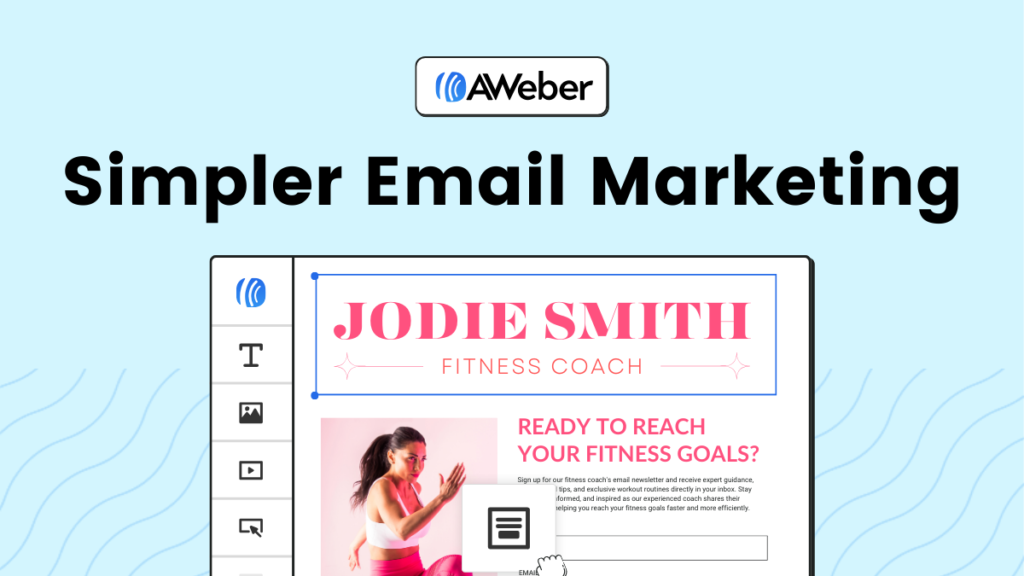
AWeber is a long-standing email marketing tool known for its simplicity and effectiveness. It’s a good choice for small businesses or entrepreneurs looking to start email marketing quickly and affordably. AWeber offers essential features like autoresponders, landing pages, and list management, with a focus on ease of use.
Pros
- Ease of Use: AWeber’s straightforward interface is perfect for beginners who need a simple platform to manage their email campaigns.
- Free Plan: AWeber offers a free plan for up to 500 subscribers, which includes basic email marketing features.
- Ready-Made Templates: The platform provides pre-designed email templates that make creating professional-looking campaigns quick and easy.
Cons
- Limited Advanced Features: AWeber doesn’t offer the same level of automation or advanced segmentation as more robust platforms like ActiveCampaign or HubSpot.
- Basic Analytics: The reporting and analytics tools are not as detailed, making it less suitable for businesses that rely on deep data insights for campaign optimization.
10. GetResponse
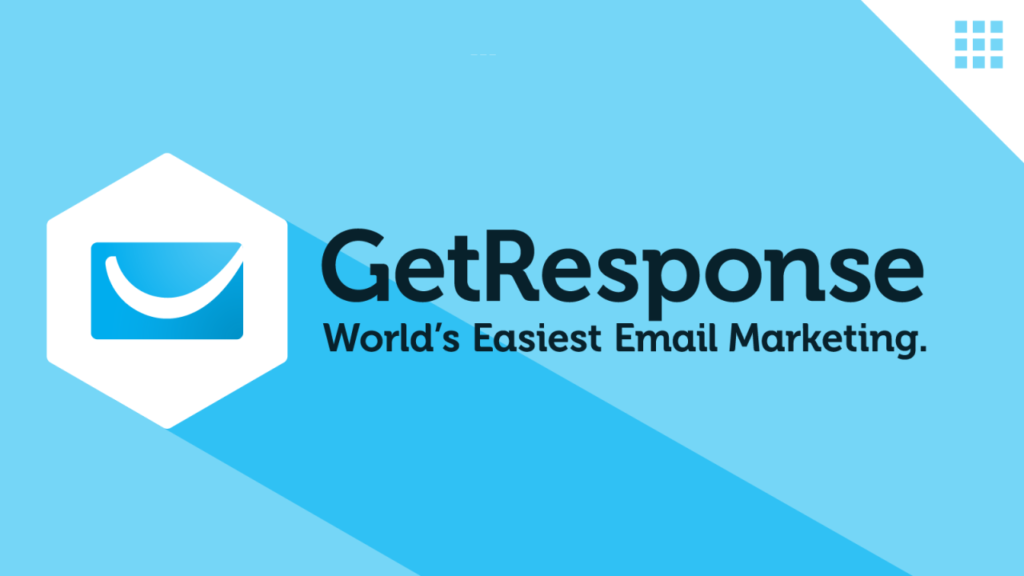
GetResponse is an all-in-one marketing platform that offers a variety of tools, including email marketing, CRM, and even webinar hosting. Its robust feature set makes it ideal for businesses looking to manage different aspects of their marketing strategy within a single platform. GetResponse also stands out for its autoresponder and lead generation capabilities.
Pros
- Comprehensive Features: GetResponse offers a full suite of marketing tools, including landing pages, webinars, and email automation, which make it a strong all-in-one solution.
- Autoresponders: The platform excels at creating automated email sequences that engage subscribers based on their actions.
- Webinars: GetResponse’s integrated webinar solution is a unique feature that sets it apart from many of its competitors, providing another channel for lead generation.
Cons
- Complex Pricing Structure: GetResponse’s pricing can be confusing, as different features are bundled into various plans, which can make it hard to determine the total cost.
- Steep Learning Curve: While the platform offers many features, its complexity can be overwhelming for smaller businesses or beginners.
11. MailerLite

MailerLite is a user-friendly email marketing platform known for its simplicity and affordability. It’s a great option for small businesses or startups looking to get started with email marketing and automation without a large budget. With a focus on providing essential features in an intuitive interface, MailerLite makes email marketing accessible to users with little technical expertise.
Pros
- Simple and Affordable: MailerLite is one of the most budget-friendly options, offering a simple interface that’s easy to navigate.
- Free Plan Available: The free plan provides basic email marketing tools for up to 1,000 subscribers, making it great for new businesses.
- Automation Features: Despite its low cost, MailerLite offers automation features like workflows, triggered emails, and A/B testing.
Cons
- Limited Advanced Features: MailerLite doesn’t have the more advanced CRM or sales tools that larger businesses may need.
- Fewer Integrations: Compared to competitors like ActiveCampaign or HubSpot, MailerLite has a smaller selection of integrations.
12. Drip

Drip is a highly specialized marketing automation platform aimed at eCommerce businesses. It’s built to help online stores engage customers through automated email and SMS marketing. Drip’s advanced segmentation, tracking, and personalization features make it ideal for businesses that want to create hyper-targeted campaigns.
Pros
- Designed for eCommerce: Drip integrates seamlessly with popular eCommerce platforms like Shopify and WooCommerce, allowing businesses to track customer behavior and tailor marketing campaigns accordingly.
- Advanced Segmentation: With Drip’s powerful segmentation, you can create personalized campaigns that drive higher engagement and conversions.
- Multichannel Marketing: The platform supports both email and SMS marketing, enabling businesses to reach customers through multiple channels.
Cons
- Higher Cost: Drip’s pricing starts higher than some competitors, which may be a barrier for smaller businesses or startups.
- No Free Plan: Unlike some other alternatives, Drip doesn’t offer a free plan, which might limit accessibility for new businesses.
13. Keap

Keap (formerly Infusionsoft) is a CRM and marketing automation platform designed for small businesses. It combines sales, marketing, and customer service tools into one platform, offering features like email automation, CRM, appointment scheduling, and invoicing. Keap is ideal for service-based businesses that need more than just email marketing.
Pros
- All-in-One Solution: Keap’s combination of CRM, marketing automation, and invoicing tools makes it a powerful option for service-based businesses.
- Automation: Keap’s automation features can be used to streamline both marketing and operational tasks, saving businesses time and effort.
- CRM Capabilities: The platform’s built-in CRM helps align marketing and sales, making it easier to track leads and customer interactions.
Cons
- High Price: Keap’s starting price is significantly higher than many other email marketing tools, which may make it less attractive to smaller businesses.
- Complex Interface: While feature-rich, Keap’s interface can be overwhelming for new users, leading to a steeper learning curve.
14. HighLevel

HighLevel is a comprehensive marketing automation platform designed primarily for agencies and marketing professionals. It offers a wide range of tools, including CRM, email and SMS marketing, funnel building, and pipeline management. HighLevel is ideal for businesses that want to manage everything in one place and scale their marketing efforts.
Pros
- Built for Agencies: HighLevel’s tools are designed to help agencies manage clients’ campaigns, making it easy to run multiple accounts from a single dashboard.
- Multichannel Marketing: The platform supports email, SMS, and even phone call marketing, offering a wide range of communication channels.
- Robust CRM: HighLevel includes a comprehensive CRM that helps agencies and marketers track leads, manage client communications, and automate follow-ups.
Cons
- No Free Plan: HighLevel does not offer a free plan, and its pricing may be a bit high for smaller businesses or freelancers.
- Complex Features: The platform’s feature-rich environment can be complex for beginners, especially those who only need basic email marketing tools.
15. SharpSpring

SharpSpring is a full-featured marketing automation platform designed for marketing agencies and SMBs. It offers email marketing, CRM, social media management, and more. Known for its affordable pricing compared to other enterprise-level tools, SharpSpring is a popular choice for businesses that need robust features without the high cost.
Pros
- Affordable for Agencies: SharpSpring offers a wide range of features at a price point that’s much lower than enterprise-level alternatives like HubSpot or Salesforce.
- All-in-One Marketing Solution: With email marketing, CRM, social media management, and more, SharpSpring offers an extensive range of tools to cover multiple marketing needs.
- Agency Focused: SharpSpring’s features are designed with marketing agencies in mind, allowing for easy client management and reporting.
Cons
- Steep Learning Curve: The platform offers so many features that it can take time to learn and configure properly, especially for new users.
- Support Limitations: Some users have reported that customer support could be more responsive, which can be frustrating if you run into issues.
ActiveCampaign Alternatives FAQs
Why should I consider an alternative to ActiveCampaign?
While ActiveCampaign is a powerful tool, it may not be the best fit for every business. Some businesses may find its pricing too high, or its features too complex for their needs. Additionally, other tools may offer specific functionalities that better align with your goals, such as deeper eCommerce integrations or more affordable pricing.
Which alternative is the best for small businesses?
For small businesses, tools like Brevo, MailerLite, or EngageBay are excellent choices. They provide the essential features needed for email marketing and automation at affordable price points.
What’s the best free alternative to ActiveCampaign?
MailerLite, Brevo, and AWeber all offer solid free plans that cover basic email marketing needs. For businesses just starting out, these platforms provide the tools necessary to grow without any upfront costs.
Which alternative is best for eCommerce businesses?
Klaviyo and Omnisend are specifically designed with eCommerce businesses in mind. Their advanced automation and deep integrations with platforms like Shopify make them ideal for online stores.
What is better than ActiveCampaign?
What’s “better” depends on your specific needs. If you’re looking for an affordable all-in-one solution, platforms like MailerLite or Brevo (formerly Sendinblue) could be better options. For eCommerce businesses, tools like Klaviyo and Omnisend offer more tailored features. If you need advanced CRM capabilities, HubSpot may be a better choice. Each alternative offers unique strengths that may outperform ActiveCampaign in certain areas.
Is there a free version of ActiveCampaign?
No, ActiveCampaign does not offer a completely free version. However, they do provide a free trial that allows you to test the platform for a limited period. For long-term free options, you might want to consider alternatives like MailerLite, Brevo, or AWeber, which offer free plans with basic features.
What is the difference between ActiveCampaign and ClickFunnels?
ActiveCampaign is primarily an email marketing and automation platform with CRM features, designed to help businesses automate their marketing efforts. ClickFunnels, on the other hand, focuses on building sales funnels and landing pages to drive conversions. While ActiveCampaign excels in automation and customer engagement, ClickFunnels is more tailored for creating conversion-optimized sales processes.
Is ActiveCampaign a unicorn?
Yes, ActiveCampaign achieved unicorn status in 2021 after a funding round that valued the company at over $1 billion. This reflects its strong position in the marketing automation and CRM space, offering solutions for businesses of all sizes.
Conclusion: The Best Alternative to ActiveCampaign
Choosing the best alternative to ActiveCampaign depends on your specific needs and goals. If you’re a small business looking for an affordable solution, Brevo or MailerLite might be the perfect fit. For eCommerce-focused businesses, Klaviyo and Omnisend stand out with their advanced automation and personalization features. If you’re looking for an all-in-one platform that combines CRM, email marketing, and more, consider EngageBay or HubSpot.
No matter your business type or budget, there’s an alternative to ActiveCampaign that can help you achieve your marketing goals.



